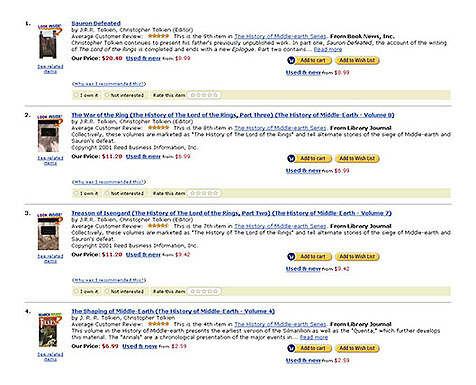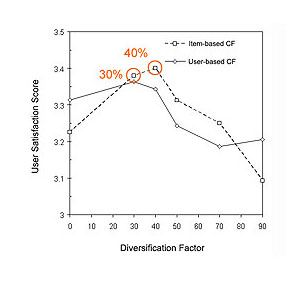Next Generation Recommender Systems
Overview
Recommender systems are personalization tools that intend to provide people with lists of suggestions that
best reflect their individual taste. In order to create profiles of the users' behavioral patterns, explicit
ratings (e.g., user a rates book b with 4 of 5 stars) and purchase data are collected. 
Overfitting effect in recommendation lists
In order to overcome the diversity issue and have recommendation lists reflect all major fields of interest in a proportial weighting,
we have developed the novel Topic Diversification method, in cooperation with GroupLens Research labs in Minneapolis, MN, USA. In order to demonstrate
that our approach bears some actual benefit for the user, increasing his level of satisfaction with recommendations made, we collected
extensive user data from BookCrossing (see below) and computed personalized surveys that were
completed by more than 2,100 BookCrossing members. The results confirmed our hypothesis. Users like to have diversified recommendation
lists spanning their entire spectrum of interests rather than merely one or two topics. 
Effect of increasing diversification on user satisfaction |
Publications
The following list identifies papers published in prestigious conferences that are relevant for the project. Please feel free
to make inquiries in order to obtain most recent, still unpublished work.
|
BookCrossing DatasetCollected by Cai-Nicolas Ziegler in a 4-week crawl (August / September 2004) from the Book-Crossing community with kind permission from Ron Hornbaker, CTO of Humankind Systems. Contains 278,858 users (anonymized but with demographic information) providing 1,149,780 ratings (explicit / implicit) about 271,379 books. Feel free to download the full dataset. |
Project Members
Moreover, several students are engaged in the project. |
Cooperations
|
